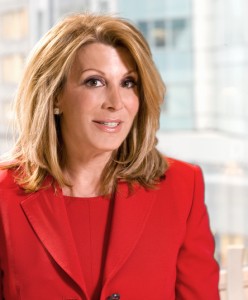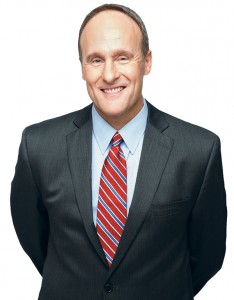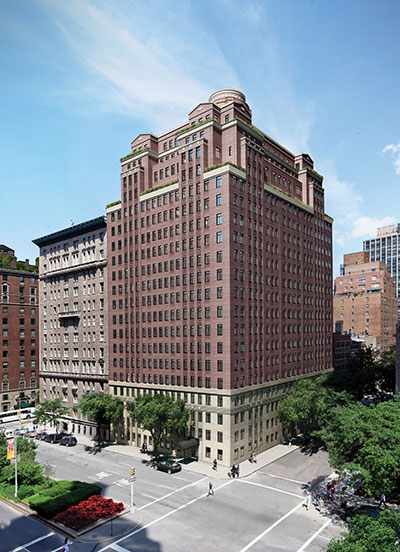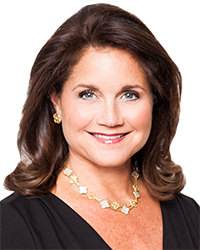In a business where information is currency, Corcoran Group’s Pam Liebman is one of the richest around. So when she heard that her former sales director, Bill Cunningham, wasn’t happy in his new job as president of Trump International Realty, she picked up the phone.
“Are you ready to come back?” the company CEO asked. The two met for drinks at the Regency that late December evening, and on Jan. 6, Cunningham returned to Corcoran’s flagship office at 660 Madison Avenue as the brokerage’s general sales manager.
“He belongs here,” Liebman said during a recent interview in her office, where she called Cunningham’s return a “coup.”
In addition to Cunningham, Corcoran has seen the return of several top agents and managers, following a string of bruising defections last year.
While other firms have borne similar losses, the Corcoran departures have exposed a particular vulnerability at the firm, where the outsized success of its new-development arm has alienated some top-producing resale agents.
At Corcoran, more so than at other firms, the resale business and new-development sales are separate: The Corcoran Group’s nearly 1,200 agents in Manhattan predominantly focus on resales, while the 150-person affiliated Corcoran Sunshine Marketing Group, headed by Kelly Kennedy Mack, handles new-development sales. While that strict separation has contributed to Corcoran Sunshine’s ability to trounce its competitors, it has also made many Corcoran agents feel boxed out of the action.

Kelly Kennedy Mack
Former Corcoran agent Lauren Muss, who joined rival Douglas Elliman last fall, summed up it up this way: “I felt there were opportunities I was missing that were available here for me,” she said at the time of her departure, explaining that not being able to work on new development was a key reason that she left. (Muss, who declined to comment for this story, now has a $38 million listing at Macklowe Properties’ 432 Park Avenue, which Elliman’s new-development marketing division represents.)
Condos and competition
Last year, Corcoran sold a record $18.5 billion worth of residential real estate in New York, the Hamptons and South Florida. That included $4 billion in new-development properties. And as new-development prices have risen, so has the average sales price at Corcoran Sunshine. In 2014, the firm’s average property went for $4.6 million, the highest in its 25-year history.
“It’s a machine,” Liebman said of the marketing arm, which was created when Corcoran Group Marketing merged with Louise Sunshine’s Sunshine Group in 2007. (Corcoran Group, as a whole, is owned by Realogy’s NRT division, which bought the firm for $70 million in 2001.)

30 Park Place
Corcoran Sunshine represents more new-development units than any firm in the city, with more than 2,700 units in its roster, according to a ranking in November by The Real Deal. Included on its docket are some of the most-watched developments in the city, like Silverstein Properties’ 30 Park Place and Vornado Realty Trust’s forthcoming 220 Central Park South. Halstead Property Development Marketing ranked second with more than 2,240 units.
And the overall pipeline of units is increasing, and changing the game.
Corcoran Sunshine projects 6,500 new units total will hit the market and be up for grabs in 2015, up from about 2,500 in 2014.
The influx of new-development projects, which started several years ago, means more competition from other firms.
Back in 2011, for example, Elliman bolstered its new-development division, hiring Related Company executive Susan de França as president and CEO of Douglas Elliman Development Marketing. And in 2012, the division hired Cliff Finn, former president of Citi Habitats Marketing Group, which is also part of the Realogy family.
Elliman did not respond to requests for comment, but the firm is marketing more than 2,120 units, according to TRD’s ranking, including 432 Park and the Soori High Line at 522 West 29th Street, where units come with personal pools.
It’s no secret, however, that the big brokerages have fundamentally different models.
Where Corcoran Sunshine is known for its heavy emphasis on market analytics to price and sell units, and does not use individual powerhouse agents to draw in buyers, Elliman’s new-development sales, while also based on market data, are broker-driven. In other words, Elliman wants high-profile brokers like Fredrik Eklund, the star of the TV show “Million Dollar Listing New York,” to be the face of its new-development projects, while Corcoran Sunshine does not.
Instead, Corcoran Sunshine sales associates typically run sales offices, while the real behind-the-scenes power players — the project managers and executives — work with developers on design, marketing and sales strategy.
Elliman CEO Dottie Herman has said in the past that she believes in incorporating resale brokers in new-development sales.
“I never believed in the Sunshine model,” she told TRD in 2013. “I tell the developers, ‘If it was me, and it was my money, I would want the best of the best. I would want the best real estate brokers working for me, and most of those brokers won’t give up their entire business to work for you.’ ”

Dottie Herman
But Liebman is wholeheartedly behind the model.
“I’m not here to create a couple of superstars,” she said. “I’m here to create and grow a great brand that benefits everybody.”
“Developers have a lot of money at stake,” she added. “Sometimes it’s a hurdle getting [agents] to understand that a developer doesn’t want them sitting on their site and them running out to do a sale, or potentially having a conflict where a customer comes in and they’re worried they may sell them something else.”
But what’s good for a developer isn’t always what’s good for a broker.
Some salespeople who have left Corcoran said that they feel they have more options now. “There is more access and more flexibility” to new development, said one former Corcoran agent, who spoke on the condition of anonymity.
“Both approaches have merit,” said another former agent. But, the source continued, agents increasingly “have a hunger to be involved in different areas of real estate, rather than just show apartments and hold open houses.”
Paul Purcell, co-managing director of William Raveis NYC and a former president of Elliman, said there is merit to isolating the new-development division.
“It’s like a shiny, shiny star that people are trying to grab onto,” he said of new-development. “If you let everyone try to be involved in it, you don’t have a new-development program. You’d ruin your new-development business.”
Broker boomerang
While Corcoran Sunshine is going gangbusters, the last 12 months have seen unprecedented levels of turnover at the Corcoran mothership.
In addition to Muss, other top brokers who recently jumped ship include Robby Browne, Maria Pashby and Louis Buckworth, who all went to Brown Harris Stevens. (Buckworth was later named sales director at 520 Park Avenue.) In addition, Lindsay Barton Barrett went to upstart tech-driven brokerage Compass, along with roughly 45 other agents and three managers, according to Compass’ calculations.

Bill Cunningham
While Liebman said losing high-producers is “a hit,” she said the company is big enough to “survive.”
“We’re never happy to lose somebody, but we’re also not in a bidding war for agents,” Liebman said. “We feel that we have a great company, but you have to buy into the vision with us.”
In recent months, some agents returned to Corcoran, including Andrea Wohl Lucas and Fabienne Lecole, who did stints at Elliman and William Raveis, respectively.
Of his return, Cunningham said: “This position at Corcoran is something that doesn’t come around too often.”
Lecole, who spent five months at William Raveis, said she left Corcoran seeking “new energy” but quickly realized the brand was “something that I underestimated.”
“The power of Corcoran is huge,” she said.
Blurred lines
Still, there seem to be some changes underfoot at Corcoran.

737 Park Avenue
“Historically, it was all about the Corcoran Sunshine brand and not the broker, but now they seem to be inserting the broker as well,” said Stephen Kliegerman, president of Halstead Property Development Marketing. “They’re actually changing their approach.”
For example, Corcoran brokers Hilary Landis and Danielle Pessis have several top units at Macklowe’s 737 Park, including a $39.5 million penthouse that Landis is selling.
Meanwhile, Noble Black and Deborah Grubman are marketing the $60 million penthouse at the Baccarat Residences. Sources said Grubman was set to flee for another brokerage, but then decided to stay put. A short while later she was listing the Baccarat unit. Grubman did not respond to a request for comment.
Meanwhile, at Knightsbridge Properties’ Cast Iron House in Tribeca, Todd Vitolo and Susanne Columbia have the listing for several Shigeru Ban–designed duplexes. And Deborah Kern, a Corcoran agent, recently joined Corcoran Sunshine and was named the sales director at 220 Central Park South.
Liebman denied that there are any major changes underway. She said there has long been some overlap between Corcoran and Corcoran Sunshine. For example, at the end of a project like the Baccarat, she said, the brokerage has been moving its on-site Corcoran Sunshine team to the next project and bringing in top resale agents to finish off sales.
Typically, it will be a top buyers’ agent, who has had substantial sales in the building. “Sometimes the developer just picks,” Liebman said. “It’s super-competitive who gets that, because everyone wants that.”
But increasingly, there appears to be room at Corcoran for brokers to work on new developments.
“They are rethinking their new-development offerings to top agents because that was a main source of contention,” one source said.
Julia Boland, a longtime resale and new-development broker, moved to Corcoran in February after years at Halstead and a stint at William Raveis.
Boland said she was hired by William Raveis in the fall to launch a new-development sales division; when the brokerage put those plans on hold, she jumped at the opportunity to go to Corcoran, where she could create a niche handling smaller new-development projects.
“They don’t have too many brokers who know how to take smaller projects that wouldn’t warrant Corcoran Sunshine attention,” she said.
Corcoran Sunshine charges developers a hefty monthly fee, and not all developers can afford that outlay.
“To put the economics in perspective,” Boland said, “You can have a building with a $100 million sellout that doesn’t warrant the Corcoran Sunshine brand.”

Julia Boland
And Corcoran isn’t ceding smaller opportunities to competitors.
“At the end of the day, the Corcoran model works,” said a former top agent at the firm. But going forward, the firm may “encourage brokers to bring in their own inventory and do it in conjunction with Corcoran Sunshine, rather than compete.”
In October, Liebman tapped Gordon Hoppe, a longtime Corcoran Sunshine executive, for a new position as head of new-development sales at both Corcoran and Corcoran Sunshine.
His job includes “mentoring and managing Corcoran resale agents on new-development sales,” according to a news release at the time. “Gordon’s role as head of sales for all Corcoran new-development business underscores Corcoran’s continued commitment to provide opportunities and support for all Corcoran agents,” Liebman said in the release.
While sources said the massive pipeline of new-development projects is bound to prompt adjustments to the firm’s sales model, Liebman cautioned against betting on any major changes.
“I’m not all of a sudden going to change what has been, literally, the most successful real estate company in the country in order to compete with start-ups that may or may not be here long term,” she said.
